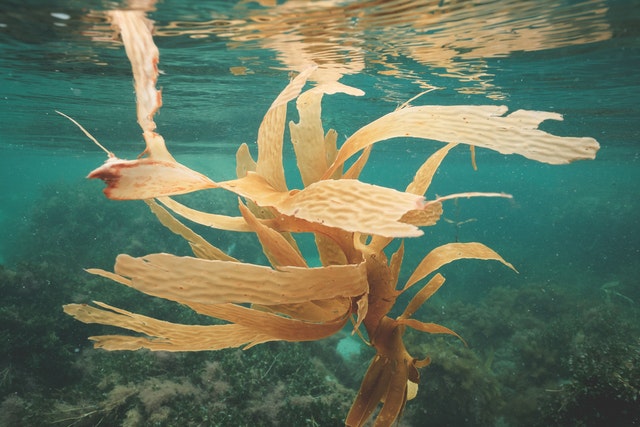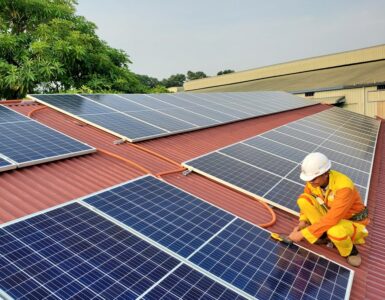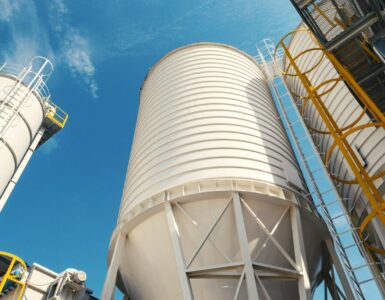At the conclusion of India Energy Week 2025, Mr Hardeep Singh Puri, Minister of Petroleum and Natural Gas referred to a collaboration by state-run HPCL with a private company to convert seaweed into biofuels.
The collaboration which the minister suggested was announced in December 2024. As part of the Memorandum of Understanding (MoU), HPCL Green R&D Centre would work with Bengaluru-based Sea6 Energy to revolutionize biofuel production from seaweed biomass.
Through this collaboration, HPCL and Sea6 Energy will develop methods to convert seaweed into biofuels and chemicals.

Hindustan Petroleum Corporation Ltd (HPCL) is a government-owned company engaged in refining crude oil and marketing petroleum products.
In 2009, HPCL Biofuels was formed as a wholly owned subsidiary of HPCL with integrated sugar and ethanol power plants.
The ethanol from these plants is used for blending in petrol in line with the government’s push for biofuel blending.
Using biofuels including ethanol and bioethanol, is significant for the Indian economy for multiple reasons. The use of biofuels typically results in lower greenhouse gas emissions than fossil fuels and reduces India’s import bills, boosting the country’s energy security.
However, producing ethanol from sugarcane has its set of environmental challenges, as it competes with food production, especially in areas where arable land is limited. Further, large-scale cultivation of sugar-rich crops for ethanol production often requires a lot of water and fertilizers. This can lead to deforestation, soil degradation, and water scarcity.
Seaweed has emerged as an alternative to sugar-based ethanol because it contains high levels of carbohydrates, particularly polysaccharides like alginate, agar, and carrageenan, which can be converted into sugars for fermentation into ethanol.
Furthermore, seaweed grows rapidly and doesn’t require arable land or fresh water to cultivate as it can grow in seawater, which helps avoid competition with food production.
The marine crop offers solutions for various applications, including biofuels, chemicals, alternatives to single-use plastic bags, cattle feedstock, as an ingredient in cosmetics, and pharma, among others.
Seaweeds grow faster than crops, double their biomass in days, and absorb large amounts of CO₂ while growing, making it a carbon sink.
To sustainably leverage this natural resource, in October 2024, the Indian government issued the ‘Guidelines for Import of Live Seaweeds into India’ to support the development of seaweed enterprises as a key economic driver and help protect the environment.
The government want to revolutionize the seaweed sector, aiming to increase seaweed production in the country by over 1.12 million tonnes by 2025. The cultivation of seaweed in India can give a significant push for job creation, socio-economic upliftment and sustainability.
Sea6 Energy is a Bengaluru-based startup that is engaged in the production and processing of tropical red seaweed. The company was founded on the campus of IIT Madras in 2010 by Nelson Vadassery, Shrikumar Suryanarayan, Sowmya Balendiran, and Sri Sailaja Nori.
Sea6 Energy has introduced solutions that automate the farming and harvesting of seaweed, which helps in large-scale seaweed production and reduces costs. After harvest, the company leverages seaweed to make products like animal feed, biofuels, and bioplastics.
The collaboration between HPCL and Sea6 Energy to convert seaweed into biofuels is to be derived from tropical red seaweed, known for its high carbohydrate content. Red seaweed is found on the coasts of Tamil Nadu, Gujarat, and Daman and Diu in India.
Seaweed holds significant potential as an alternative feedstock for bioethanol production and HPCL’s collaboration with Sea6 Energy is an illustration of how we harness future energy.
Sea6 Energy was on our annual Change Started Green Startups of the Year 2022.
Want to know why the biofuel economy is important for India? Read here.






Add comment